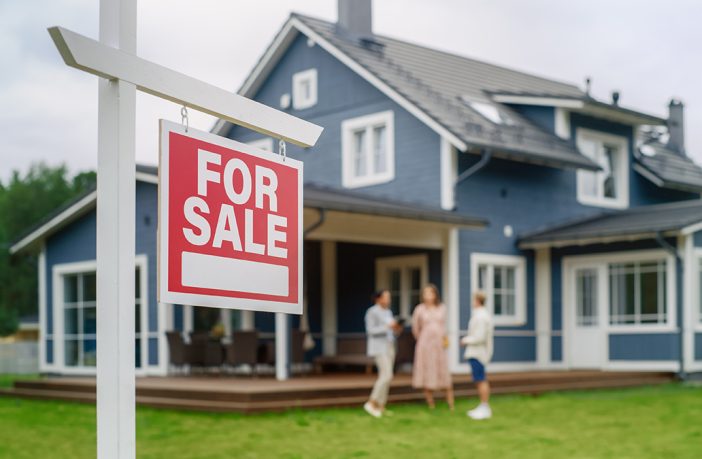The dream of nearly every American citizen since our country’s inception has been that of home ownership, but in recent years numerous circumstances have combined to form a more and more formidable barrier for people to achieve that milestone. And one of the areas of the nation where that rings true the most has become Long Island, New York, for several factors that are unique within its borders.
But, while acquiring a home in Nassau and Suffolk counties has become quite the undertaking, an experienced and knowledgeable real estate professional still holds hope that, given time and shifting economic tides, the dream of home ownership on Long Island can yet become a reality for those who are willing to persevere and work hard towards it.
Artisan Mortgage Company is a wholesale mortgage broker in Bay Shore, NY, and according to President Jim Barry – who founded the company in 2005 – there is a key factor that currently holds the real estate landscape of Long Island firmly within its grasp: the age-old law of supply versus demand, which holds especially true here – more so than many other places in the country – due to its unique circumstances.
“The challenge with Long Island is that there’s a lot of demand, but not much supply. I see it happening all the time with my buyers. For every house that’s for sale, there’s 20 or 30 buyers competing for it, and it’s driving prices through the roof,” he said. “I thought the market would start to cool when rates went from 3 to 7 percent, but not here…it continued to escalate regardless of interest rates.”
Things are so competitive on Long Island at the moment, Barry noted, that buyers are even willing to buy properties sight unseen and are often bidding as much as $100,000 or more over the list price.
“I had a client of mine who went to go look at a house listed at $899,000. I think they bid $1 million dollars on it, and it ended up selling for $1.1 million,” he said. “It was a nice four bedroom, three bath Colonial in a good neighborhood, but that’s just the market now. People are willing to bid over and above the asking price on a regular basis here on Long Island.”
The reason why Long Island is bucking the trend in terms of the hotness of its housing market when compared to many other areas of the country comes down to two specific details: the lack of new land to develop, and at-time draconian zoning regulations.
“In addition to not being able to build new housing, the number one issue is our zoning restrictions, which are way too difficult,” Barry said. “A lot of municipalities have very strict regulations, for example, if there’s a lot and you want to build something, but you don’t have the right setback, or you need a variance…it’s difficult to get a permit to put up a deck, let alone build a house. There’s a lot of red tape when it comes to zoning.”
“What I think would really help the market here on Long Island would be the ability to build a multi-unit property for two, three, or even four families, but it’s very restrictive,” he added.
Long Island is an example of urban sprawl; that is, the population spreading out from New York City on to Long Island, with development heading ever eastward where more and more housing tracts were being built over time. However, today, the amount of land available to Long Island to continue that sprawl has all but dried up, driving up prices of the existing properties more and more.
New York State has issued certain incentives and relaxed restrictions that have allowed towns on Long Island – such as Bayshore, Farmingdale, Ronkonkoma and Lynbrook – to build high-end, luxury apartment complexes situated near Long Island Rail Road stations to allow easier city commutes and to fill the gap in the lack of housing that Nassau and Suffolk county currently have.
Barry also noted that New York State is currently promoting something that, for many years, was considered taboo on Long Island: accessory dwelling units (ADUs), which are basically apartments within existing houses, often located in basements or garages. Previously, landlords of such units had to take great care to make sure their neighbors or the local town board didn’t discover they had tenants; however, Barry said that nowadays it’s much easier to get permits for such dwellings, pointing out that the state has even gone so far as to roll out an ADU grant program to help people add to apartments to their homes.
Another factor affecting the housing supply on Long Island falls directly on Baby Boomers. Many of the houses here are owned by this demographic, who are loathe to sell their paid-off houses and move elsewhere because of the current high interest rates on home mortgages; this essentially results in a “clog” in the local real estate market. But the good news, according to Barry, is that he expects the Boomers to begin aging out of their homes within the next decade, opening up housing stock that others can take advantage of.
Currently, the dream of home ownership can be a challenge to achieve, both on Long Island and nationally. However, Barry said that it’s not all gloom and doom, as the rental market is becoming a more and more viable alternative that actually holds some very distinct advantages over home ownership.
“I think for many, the dream of home ownership isn’t going to be what it once was, but for many people you can live in an apartment for much less money and invest the difference into a market and then eventually purchase a home,” he said. “Renting certainly isn’t the worst thing in the world. Some people think they’re just throwing away all their money, but financially, mathematically, you’re not. And some people think they’re not successful if they don’t own a home, but that’s absolutely not true. There are other avenues to create long-term generational wealth other than owning a home.”
“Renting home or an apartment for a period of time to give yourself a bit more of a runway to be able to purchase a home, there’s nothing wrong with that at all,” he added.
To find out more, please visit https://www.artisanhomemortgage.com or call 631-859-9414.











